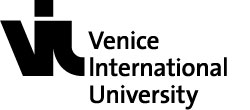S2015 Adolescence in the Global World. Transitions, Coping and Adjustment
Professors
Schedule
Course description
Adolescence is well documented as a crucial period along the way to become an independent, happy and productive adult. During this developmental state the adolescents are eager to learn the world around them and beyond and intensively define themselves vis-a-vi their new experiences and insights. Due to globalization, this journey, from childhood to adulthood, turns to be much more complicated and demanding. One result of it is the emerging identity problem, or lack of self clarity, that many adolescents experience. In the course, the students will learn about prominent models of adjustment to transitions; discuss and identify the generic components of psychological adjustment to new circumstance; and will become acquainted with ways to promote positive adjustment, of individuals, organizations and societies. Following that the students will outline the current and future challenges the adolescents encounter in the global world, especially in light of the technological changes and widespread involvement in social networks. Finally, ways to support adolescents in times of globalization and how to promote their successful transition to emerging adulthood will be presented and discussed.
Syllabus
1. Introduction. The main goals of the course. The structure of the course. Introduction to Human Development.
2. Adolescence as a transitional state.
3. Leading theorists of adolescents' development: Freud, Erickson, Piage, Kohlberg, Selman and Noam
4. Theories of adjustment to normative life transitions (e.g., P-E Fit model)
5. In pursuit of a grand theory of adjustment to transitions
6. In search of self-clarity: Personal, Cultural, Physiological, Political and Technological considerations.
7. Escape from identity formation: The sang (丧 ) culture; Berry's model of marginalization and the emergence of invisible youth.
8. Adolescents' global labor market
9. Adolescents' decision making in the global world
10. Intimate relationships reconsidered
11. From adolescence to Emerging adulthood
12. Integrative life planning (Hanssen) in time of Globalization
Learning outcomes
By the end of course the students will be acquainted with the leading theories on adolescents' development and the gap between these models and the emerging needs of adolescents in the current and future global world/society. In addition, the students will understand what it means to encounter transition, to manage a transition and to re-adjust to new circumstance. Based on these notions, the students will get preliminary insight into the needed process of supporting adolescents in pursuing their current developmental goals and their future aspirations.
Teaching and evaluation methods
The course will be administered as a workshop. Firstly, in which the students are encourage to share their personal knowledge and experiences in transition (e.g., relocation) followed by discussions on common and different components of their adjustment process. Then, the students will be encouraged to reflect on the various models and topics, both from their own experiences as adolescents as well as from their observations of the future challenges those adolescents in their own home-country face.
Students' evaluation will be made based on:
1. Active participation in class discussions- 30%
2. Oral and written presentation of (short) literature review on current adolescents' challenges – 40%
3. Written report on one of the applied implications (will mutually be determined) for "supporting adolescents in the global world" – 30%
Bibliography
Bonanno, G. A., & Diminich, E. D. (2013). Annual Research Review: Positive adjustment to adversity – trajectories of minimal–impact resilience and emergent resilience. Journal of Child Psychology and Psychiatry, 54, 378–401. doi: 10.1111/jcpp.12021
Caneva, E. (2017). Identity processes in the global era: The case of young immigrants living in Italy. Journal of Youth Studies, 20, 79-93. http://dx.doi.org/10.1080/13676261.2016.1184240
Eccles, E. S., & Roeser, R. W. (2011). Schools as Developmental Contexts During Adolescence. Journal of Research on Adolescence, 21, 225 – 241. doi: http://dx.doi.org/10.1111/j.1532-795.2010.00725.x
Erentaitė, R., Lannegrand-Willems, L., Negru-Subtirica, O., Vosylis, R., Sondaitė, J., & Raižienė, S. (2018). Identity development among ethnic minority youth: Integrating findings from studies in Europe. European Psychologist, 23, 324-335. http://dx.doi.org/10.1027/1016-9040/a000338
Guthold, R., Moller, A.-B., Azzopardi, P., Ba, M. G., Fagan, L., Baltag, V., . . . Diaz, T. (2019). The Global Action for Measurement of Adolescent health (GAMA) initiative—Rethinking adolescent metrics. Journal of Adolescent Health, 64, 697-699. http://dx.doi.org/10.1016/j.jadohealth.2019.03.008
Israelashvili, M. (2012). Should Adjustment Disorder be Conceptualized as Transitional Disorder? In Pursuit of Adjustment Disorders Definition. Journal of Mental Health, 21, 579-588
Israelashvili, M. (2017). The increasingly prominent role of visualization in counseling: Examples and implications for school counseling. In L. Note and S. Soresi (Eds.) Counseling and coaching in time of crisis and transitions: From research to practice (Ch. 3). Oxford, UK: Routledge. https://www.routledge.com/Counseling-and-Coaching-in-Times-of-Crisis-and-Transition-From-Research/Nota-Soresi/p/book/9781138290082
Louis, M. (1980). Surprise and sense-making: What newcomers experience in entering unfamiliar organizational settings. Administrative Science Quarterly, 25, 226-251
PISA – OECD (2019). Preparing out youth for an inclusive and sustainable world. https://www.oecd.org/education/Global-competency-for-an-inclusive-world.pdf
Šverko, I., & Babarović, T. (2019). Applying career construction model of adaptation to career transition in adolescence: A two-study paper. Journal of Vocational Behavior, 111, 59-73. http://dx.doi.org/10.1016/j.jvb.2018.10.011




















